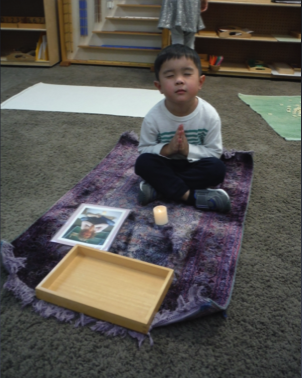Peer Conflict – What is a parent to do?
Handling Peer Interaction Complaints From Your Early Childhood Student
It can be difficult to know what to do when your child voices complaints about negative experiences with classmates. Parents natural response is to be protective. Thus, many of us jump to the defense of our child, driven to find an expedient end to the problem such as asking classroom teachers to stop it from happening again. While well-meaning, this may not be the most feasible or beneficial way to handle peer problems.
In fact, situations like these represent a unique opportunity for parents to engage their child in problem solving and social skill-building. They learn these skills by (1) observing parent reaction and problem solving styles, and (2) practicing new skills on their own during future problematic encounters. The 3- to 6-year age group is a crucial time for learning social emotional skills that research shows contribute to success later on. Over and above acquisition of early academic skills, children who develop their functional communication, the ability to tolerate delayed gratification and the ability to comply with reasonable requests (i.e., follow directions) show better school performance (and overall life skills) down the road.
The next time your child comes home with a complaint about a negative peer interaction consider the following thoughtful response methods:
- Offer Empathy and a chance to tell their story…“I am sorry that happened today, tell me more about ________________. How did you feel when _________________ happened?” If you feel inclined to react with your own emotions, do your best to take a breath and a break, followed by empathy. Remember that your reaction may encourage or discourage a variety of emotional responses from your child.
- Consider whether you need more information from another perspective… all stories have more than one side. We can better process the event and plan our response when we have more information. After taking time to visit with your child about the event, author an inquiring email to their teachers if you still have questions. Remember to remain factual. Present what your child said (in their own words) and ask not for a solution (yet) but for more information. What have the teachers observed? What has been tried and worked or not worked for these situations? What can you (the parent) be doing to support your child?
- Understand what your child would like to see happen instead… We may intuit that our child is bothered by the interaction because they felt the need to tell us about it. But, we should ask specifically what was it that bothered them and why? For example, what did they want or expect to happen that didn’t? How would they have preferred the interaction to go? What would like they you (the parent) to do to support them? If their response involves a reasonable goal, we can find a different way to help them achieve that goal.
- Teach, model and offer opportunities to practice (through role play) a new way of responding… Help your child generate ideas about other ways to respond should the situation occur again. What can they do differently and what do they think the outcome might be of those new responses? Practice using role play skills. Don’t forget to anticipate both positive and negative outcomes (as these provide opportunities to practice handling disappointment and persistence, but also helps maintain hopefulness that things can get better.)
- Email your child’s teachers again with a plan you and your child have worked out at home…make the classroom teachers aware of the plan so they can be supportive of the newly learned skills your child will be using and can continue to follow up if other skills are needed. AND, don’t forget to check back with your child about how the new plan is working!
